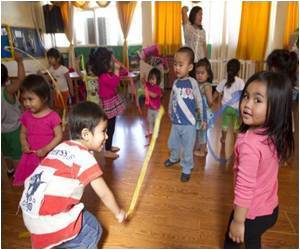Children born only few weeks before time are notably likelier to have behavioural and/or emotional problems in the pre-school years, suggests a published research.

While the rate of very premature births has remained more or less constant for some time, the rate of moderately premature births has been rising, say the Dutch researchers.
They base their findings on more than 1,500 children whose behaviour and emotional development were assessed at the age of 4, using validated tests. All the children were part of a long term study looking at the growth, development, and general health of children born prematurely (The Longitudinal Preterm Outcome Project or Lollypop).
Just under 1,000 children were born between 32 and 35 weeks of pregnancy, classified as "moderately premature," and just under 600 were born at term.
Seven behavioural/emotional components were assessed, including anxiety/depression, aggression, attention disorders, and somatic complaints - conditions with no obvious physiological cause. The prevalence of behavioural (externalising; acting out), and emotional (internalising), problems, were also assessed.
The moderately preterm children had higher scores than their term peers on all the measures used, clocking up an average difference in cumulative score of more than four points.
Advertisement
They were also almost twice as likely to have somatic complaints and almost twice as likely to have behavioural and emotional problems, overall.
Advertisement
This is because these types of problems tend to persist into later childhood and adolescence and are likely to affect their academic performance and friendships at school.
Source-Eurekalert








